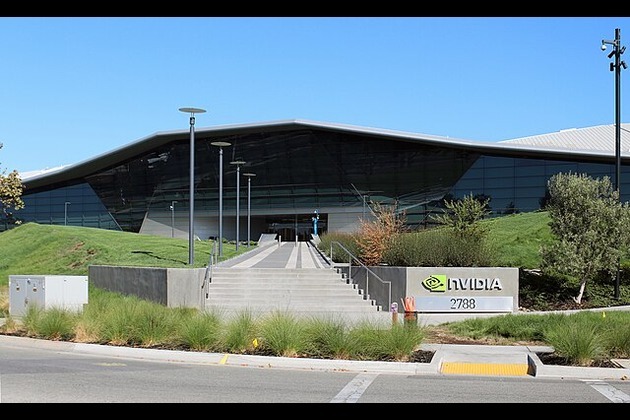How Modern Molecular Spectroscopy Instruments Are Transforming Science
7Newswire
24 May 2023, 11:50 GMT+10

Science has always been driven by curiosity, exploration, and the desire to understand the world around us. Over the years, technological advancements have played a pivotal role in transforming how we conduct scientific research. One such revolutionary area is molecular spectroscopy, which deals with the interaction of light with matter and provides valuable insights into the structure, dynamics, and behavior of molecules.
Molecular spectroscopy instruments have emerged as powerful tools that are revolutionizing scientific investigations across various disciplines in recent years. In this blog post, we will explore the incredible impact of these instruments on scientific research.
Enhancing Analytical Capabilities
Modern molecular spectroscopy instruments, such as mass spectrometers, nuclear magnetic resonance (NMR) spectrometers, and infrared (IR) spectrometers, have significantly enhanced analytical capabilities in various scientific fields.
These instruments allow researchers to analyze complex mixtures, identify unknown compounds, determine molecular structures, and investigate chemical reactions with unparalleled precision and sensitivity. This has opened up new avenues for breakthrough discoveries in chemistry, biochemistry, pharmacology, and materials science.
Advancing Drug Discovery
The development of new drugs is a complex and time-consuming process. However, modern molecular spectroscopy instruments have revolutionized the field of drug discovery by enabling faster and more accurate characterization of potential drug candidates.
Mass spectrometry-based techniques, such as liquid chromatography-mass spectrometry (LC-MS), facilitate rapid screening and identification of drug metabolites, improving our understanding of drug metabolism and designing safer and more effective medications.
Unraveling Biomolecular Structures
Nuclear magnetic resonance (NMR) spectroscopy has become invaluable in unraveling the intricate structures of biomolecules like proteins and nucleic acids. By studying these structures in solution, NMR spectroscopy offers unparalleled insights into the fundamental workings of life processes and the development of targeted therapies for various diseases.
NMR spectroscopy plays a crucial role in elucidating the complexities of biomolecular structures. Its utilization in studying proteins and nucleic acids in solution has revolutionized our understanding of life processes, opening up new possibilities for targeted therapeutic interventions.
By providing intricate details about atomic-level interactions, dynamics, and folding pathways, NMR spectroscopy has propelled breakthroughs in structural biology and drug design, shedding light on protein folding, enzyme mechanisms, and drug-protein interactions. This powerful technique continues to pave the way for advancements in biomedical research, contributing to the development of novel treatments and expanding our knowledge of the molecular underpinnings of life.
Probing Cellular Processes
The development of advanced fluorescence spectroscopy techniques, such as fluorescence resonance energy transfer (FRET) and fluorescence lifetime imaging microscopy (FLIM), has revolutionized the study of cellular processes.
These techniques allow scientists to visualize and monitor molecular interactions, protein dynamics, and intracellular signaling events in real time and with high spatial resolution. By gaining insights into cellular processes at the molecular level, researchers can unravel complex biological mechanisms and identify new targets for therapeutic interventions.
Environmental Monitoring and Analysis
Modern molecular spectroscopy instruments play a vital role in environmental monitoring and analysis. Techniques like infrared and Raman spectroscopy have revolutionized identifying and measuring pollutants, contaminants, and toxins in air, water, and soil.
Their application is invaluable in evaluating environmental risks, tracking industrial emissions, and safeguarding the quality of food and water supplies. By enabling swift and precise analysis of environmental samples, these instruments support informed decision-making and aid in minimizing the adverse effects of human activities on our planet.
Through advancements in molecular spectroscopy, environmental monitoring, and analysis have been greatly enhanced. Infrared and Raman spectroscopy have revolutionized the detection and quantification of pollutants, contaminants, and toxins in air, water, and soil samples.
These cutting-edge techniques have become essential in assessing environmental risks, monitoring industrial emissions, and ensuring the safety of our food and water supplies. By enabling rapid and accurate analysis of environmental samples, these instruments provide valuable insights for decision-making and help mitigate the impact of human activities on the Earth.
Astronomical Discoveries
Molecular spectroscopy has even extended its reach beyond Earth. In astronomy, spectroscopic techniques analyze the light emitted or absorbed by celestial objects, providing valuable information about their composition, temperature, and motion.
Astronomers employ infrared, ultraviolet, and radio telescopes equipped with sophisticated spectrometers to explore the mysteries of the universe. Spectroscopic observations have played a critical role in discovering and characterizing exoplanets, studying the origins of galaxies, and detecting complex organic molecules in interstellar space.
Conclusion
Modern molecular spectroscopy instruments have ushered in a new scientific exploration and discovery era. These powerful tools have transformed how researchers investigate the molecular world, revolutionizing chemistry, biology, medicine, and environmental science. By providing detailed insights into molecules' structure, dynamics, and behavior, these instruments have opened up new avenues for understanding and manipulating the world around us. As technology advances, it is exciting to envision the future possibilities as modern molecular spectroscopy instruments continue to shape and transform the landscape of scientific research. Share
Share
 Tweet
Tweet
 Share
Share
 Flip
Flip
 Email
Email
Watch latest videos
Subscribe and Follow
Get a daily dose of Hawaii Telegraph news through our daily email, its complimentary and keeps you fully up to date with world and business news as well.
News RELEASES
Publish news of your business, community or sports group, personnel appointments, major event and more by submitting a news release to Hawaii Telegraph.
More InformationInternational
SectionNetanyahu vows 'No Hamas' in postwar Gaza amid peace talks
CAIRO, Egypt: This week, both Hamas and Israel shared their views ahead of expected peace talks about a new U.S.-backed ceasefire plan....
US sends message by publicizing visa ban on UK punk-rap band
WASHINGTON, D.C.: The Trump administration has made public a visa decision that would usually be kept private. It did this to send...
Tragedy in Spain: Diogo Jota and his brother die in car accident
MADRID, Spain: Liverpool footballer Diogo Jota and his younger brother, André Silva, have died in a car accident in Spain. Spanish...
Early heatwave grips Europe, leaving 8 dead and nations on alert
LONDON, U.K.: An unrelenting heatwave sweeping across Europe has pushed early summer temperatures to historic highs, triggering deadly...
U.S. military, China, Russia in Space race
President Donald Trump's plans to build a space-based Golden Dome missile defense shield have drawn immediate criticism from China,...
Trump wins $16 million settlement from Paramount over CBS Harris edit
NEW YORK CITY, New York: Paramount has agreed to pay US$16 million to settle a lawsuit brought by U.S. President Donald Trump over...
Business
SectionShein hit with 40 million euro fine in France over deceptive discounts
PARIS, France: Fast-fashion giant Shein has been fined 40 million euros by France's antitrust authority over deceptive discount practices...
Meta hires SSI CEO Gross as AI race intensifies among tech giants
PALO ALTO/TEL AVIV: The battle for top AI talent has claimed another high-profile casualty—this time at Safe Superintelligence (SSI),...
Engine defect prompts Nissan to recall over 443,000 vehicles
FRANKLIN, Tennessee: Hundreds of thousands of Nissan and Infiniti vehicles are being recalled across the United States due to a potential...
Microsoft trims jobs to manage soaring AI infrastructure costs
REDMOND, Washington: Microsoft is the latest tech giant to announce significant job cuts, as the financial strain of building next-generation...
Stocks worldwide struggle to make ground Friday with Wall Street closed
LONDON UK - U.S. stock markets were closed on Friday for Independence Day. Global Forex Markets Wrap Up Friday with Greeback Comeback...
Nvidia briefly tops Apple’s record in AI-fueled stock rally
SANTA CLARA, California: Nvidia came within a whisker of making financial history on July 3, briefly surpassing Apple's all-time market...













